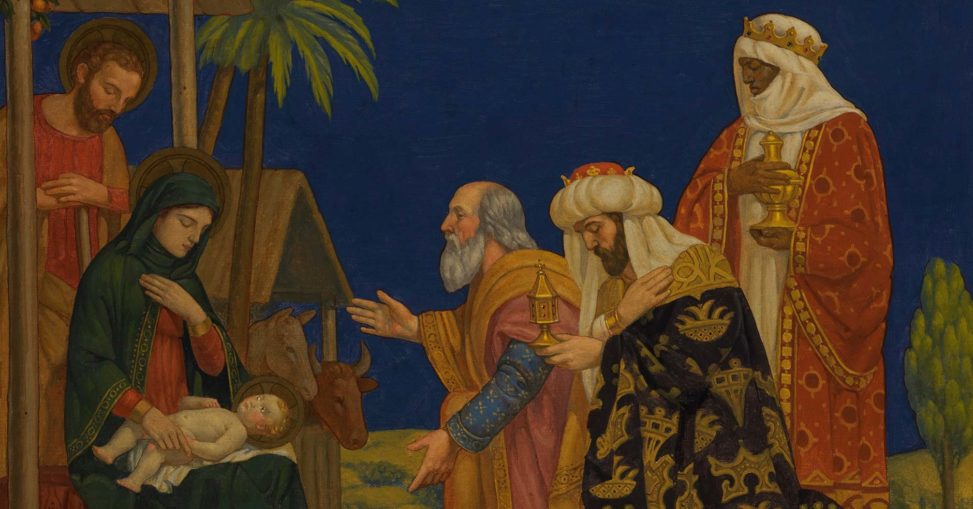Today, January 6, is Epiphany. Falling twelve days after Christmas, Epiphany is the day we remember the wise men’s visit to Jesus as recorded in Matthew 2:1-12.
The visit itself is peculiar. Scholarship agrees that Matthew’s Gospel was written to a predominantly Jewish Christian audience. Yet here at the start, the first people who come to worship this newborn king are Gentiles, visitors from a foreign land. Matthew is pointing out that the mission of Jesus the Christ is bigger than one might expect. Rather than a king for the Jews, Jesus is a king for all peoples, and the wise men’s visit is there to remind us of that.
Outside of the United States, in Spain and many Latin American countries, Epiphany, not Christmas, is the traditional day of gift exchanges during the holiday season. Children write letters to the Magi on Epiphany Eve, and then they leave their shoes outside their doors to be filled by the Magi as they pass by on their way to visit the Christ.
Further reflecting on the wise men and the gifts they brought (i.e. gold, frankincense, and myrrh), we glean ever deeper insights. Subjects gave gold to their sovereign. It was a gift befitting a king one might say. Frankincense was a key ingredient in the incense burned before the ark of the testimony (see Exodus 30:34). This was the very place where God would meet with the high priest in the temple. In fact, to Jews familiar with temple worship, reading “frankincense” here they might think of it in their minds as the very “smell of God”. Lastly the wise men also brought myrrh, a gum-resin used, among other things, for the preservation of bodies in burial.
So here in these three gifts highlighted by Matthew, we are given a foreshadowing of who Jesus is. He is 1) the long awaited King descended from King David, 2) he is Emanuel, God with us, and 3) he is God’s faithful servant, faithful to the very end, dying on the cross as the atoning sacrifice for sin, first for the Jews, and second for the wise men and all the rest of us.


Leave a Reply